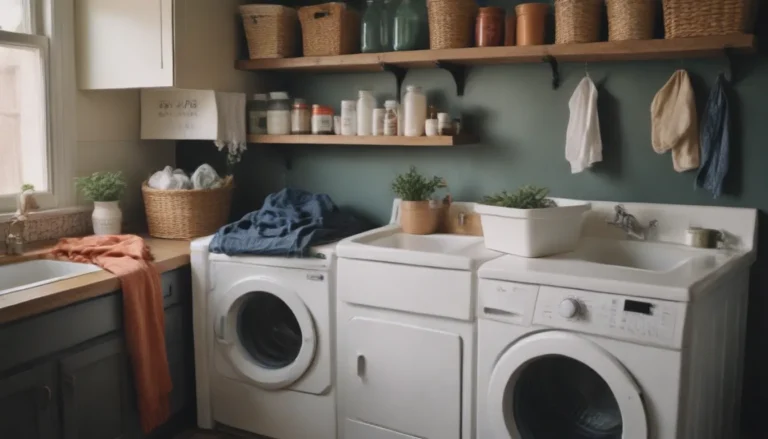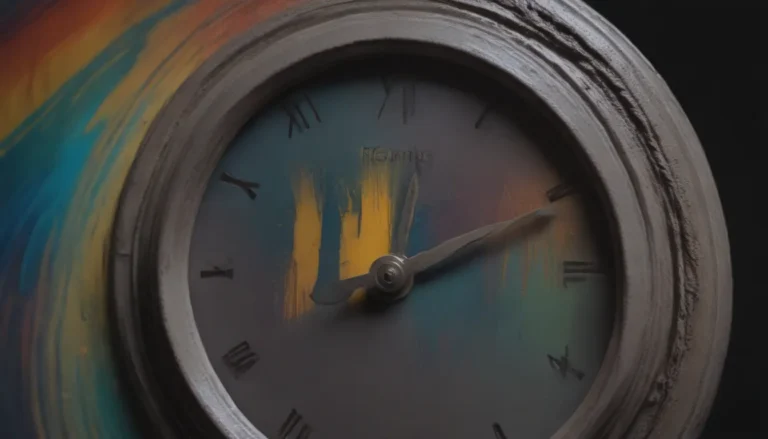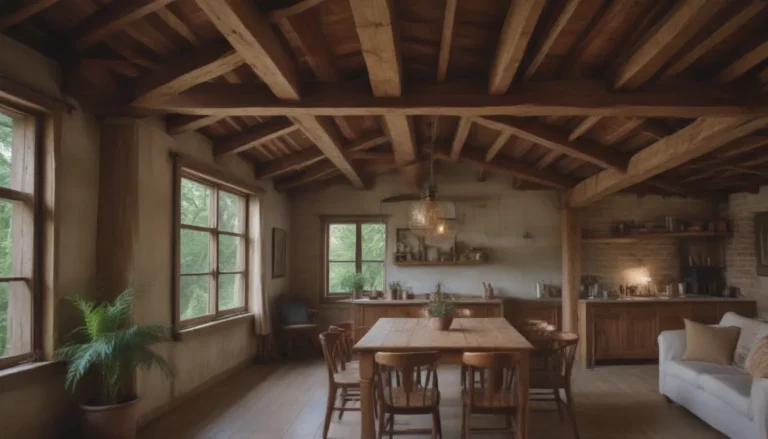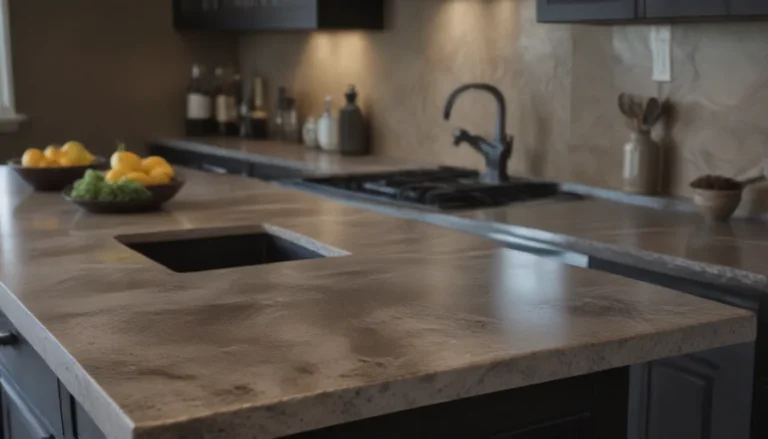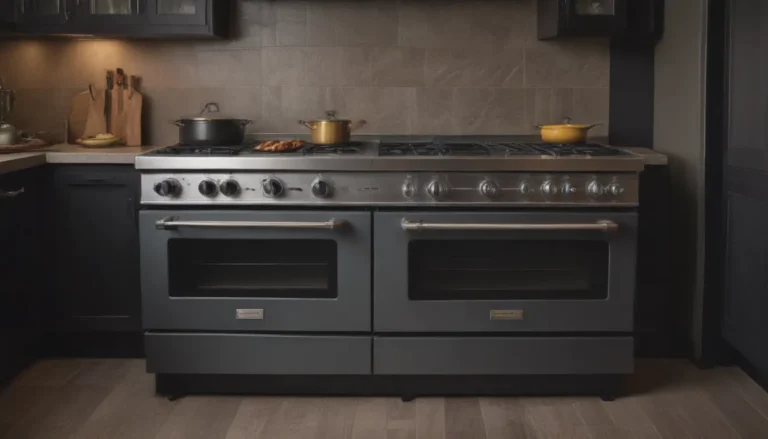The Ultimate Guide to Understanding the Cost of a Concrete Driveway
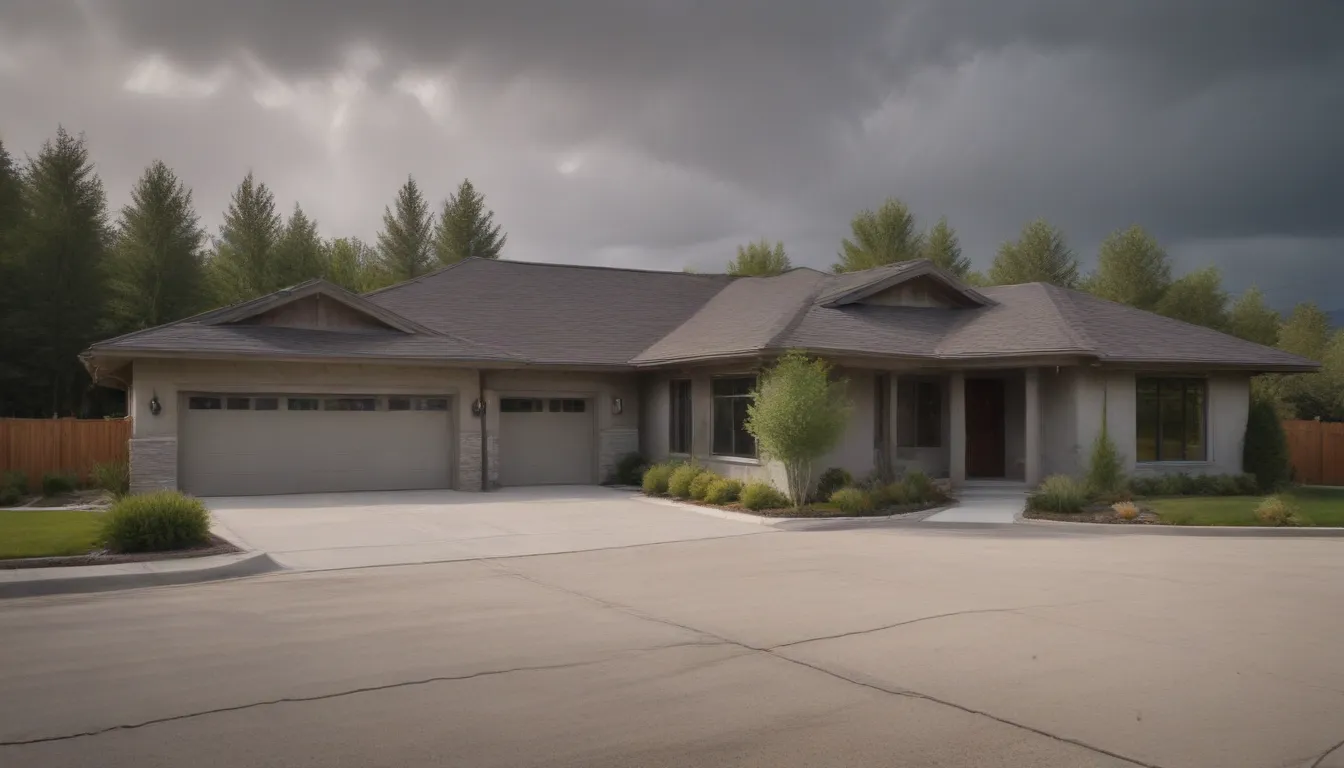
So you’re considering investing in a new concrete driveway for your home. You’ve heard about the benefits it can bring – increased property value, enhanced curb appeal, and a clean, durable surface for your vehicles and family. But how much does a concrete driveway actually cost? In this comprehensive guide, we’ll break down everything you need to know about the cost of a concrete driveway, from average prices to key factors that impact the final price tag. Let’s dive in!
Understanding the Average Cost of a Concrete Driveway
When it comes to the cost of a concrete driveway, the average price sits at around $5,565. However, costs can range from $3,120 to $8,010 depending on various factors such as size, thickness, and optional features. It’s important to note that investing in a concrete driveway is a long-term commitment that can add significant value to your property.
What Is a Concrete Driveway?
A concrete driveway is a durable and versatile surface made by pouring a liquid concrete slurry into forms and reinforcing it with materials like rebar or steel mesh. The top is then smoothed or stamped to create a textured finish, making it a popular choice for homeowners looking for a sturdy and attractive driveway.
Concrete Driveway Costs Per Square Foot
On average, a concrete driveway costs around $9.50 per square foot. However, prices can vary widely, ranging from $4.50 to $14.50 per square foot based on factors like size, thickness, and additional features. Understanding the cost per square foot can help you estimate the total price of your new driveway.
Key Factors That Impact Concrete Driveway Costs
Several key factors influence the overall cost of a concrete driveway, including:
1. Size
The size of your driveway plays a significant role in determining the total cost. Larger driveways require more materials and labor, leading to higher expenses. Additionally, additional features like stamping, staining, or heating elements can also increase costs.
2. Slab Thickness
The standard thickness for a concrete driveway slab is four inches, suitable for most regions and vehicles. However, if you have heavier vehicles or challenging terrain, opting for a six or eight-inch slab may be necessary. Thicker slabs typically come at a higher cost, with prices ranging from $6 to $22.50 per square foot.
3. Shape
One of the advantages of using concrete for driveways is its ability to adapt to various shapes and forms. The shape of your driveway, whether a single-stall or double-stall design, can impact the overall cost. A larger, more complex design will typically cost more than a simple, straightforward layout.
4. Extra Features
Adding extra features like stamped concrete, staining, sealing, or heating elements can enhance the appearance and functionality of your driveway but also come at an additional cost. Understanding the prices for these features can help you create a customized driveway that fits your budget and aesthetic preferences.
Incorporating Extra Features into Your Concrete Driveway
Enhancing your concrete driveway with additional features can transform it from a basic surface to a stunning focal point of your home. Here are some popular options and their average costs:
1. Concrete Stamping
Stamped concrete driveways offer a visually appealing finish that replicates the look of natural materials like aged timber. The average cost of a stamped concrete driveway ranges from $11 to $18 per square foot, providing a stylish and durable surface for your home.
2. Concrete Staining
Adding color to your concrete driveway through staining can give it a unique and personalized touch. The cost of staining a concrete driveway typically ranges from $10 to $11 per square foot, allowing you to create a custom look that enhances your property’s curb appeal.
3. Concrete Sealing
Sealing your concrete driveway helps protect it from water infiltration and extends its lifespan. The average cost of sealing a concrete driveway ranges from $1 to $3.50 per square foot, providing added durability and longevity to your investment.
4. Heated Concrete
Installing heating elements in your concrete driveway can help melt ice and snow, creating a safer and more comfortable surface during the winter months. The average cost of a heated concrete driveway is $17.50 per square foot, offering added convenience and functionality for your home.
Related Costs and Considerations
In addition to the primary factors that impact concrete driveway costs, there are several related expenses to keep in mind:
1. Driveway Removal
If you need to remove an existing driveway before installing a new concrete surface, you can expect an average cost of $2.50 per square foot for removal. Properly preparing the site for the new driveway is essential to ensure a smooth and successful installation process.
2. Site Grading
Grading the site for your driveway can range from $2,000 to $5,000, depending on the complexity of the terrain and the amount of preparation required. Proper site grading is important for ensuring a level and stable foundation for your new driveway.
3. Labor
Labor costs for installing a concrete driveway average around $5 per square foot, with prices ranging from $3 to $7 per square foot. Hiring experienced professionals for the installation process can ensure a high-quality finish and long-lasting results.
4. Permits
Obtaining permits for installing a concrete driveway typically costs around $125, with potential additional fees depending on your location and local regulations. Ensuring that you have the necessary permits in place is essential for complying with building codes and regulations.
Signs You Need a New Concrete Driveway
While concrete driveways are known for their durability, they can show signs of wear and damage over time. Here are some common indicators that it may be time to replace your concrete driveway:
- Large cracks or crumbling sections that compromise the structural integrity of the surface
- Rough, pitted areas that are difficult to repair or resurface
- Visible signs of wear and deterioration that detract from your home’s curb appeal
Recognizing these signs can help you determine when it’s time to invest in a new concrete driveway that will enhance your property’s appearance and functionality.
Pros and Cons of Concrete Driveways
Before making a decision about your driveway material, it’s essential to consider the pros and cons of concrete driveways:
Pros:
- Durable and long-lasting
- Easy to clean and maintain
- Adds value to your property
- Suitable for various terrains and configurations
Cons:
- Higher initial cost compared to other materials
- Requires professional installation
- Difficult to repair minor damage
- Plain appearance without additional customization
Understanding the advantages and drawbacks of concrete driveways can help you make an informed choice that aligns with your budget and preferences.
Cost Comparison with Other Driveway Materials
While concrete driveways offer many benefits, it’s essential to consider alternative materials and their respective costs:
Concrete Driveway vs. Asphalt
An asphalt driveway typically costs less than a concrete driveway, with prices averaging around $7.70 per square foot. However, asphalt driveways have a shorter lifespan and require more frequent maintenance and repairs than concrete surfaces.
Concrete Driveway vs. Pavers
Concrete pavers and stone pavers are popular alternatives to poured concrete driveways. While pavers offer a customized and stylish appearance, they are generally more expensive, with prices ranging from $10 to $70 per square foot. Pavers are easier to repair but come at a higher initial cost compared to concrete.
Concrete Driveway vs. Crushed Gravel
A crushed gravel driveway is a cost-effective option, with prices ranging from $1.25 to $1.80 per square foot. While gravel driveways are easy to install and maintain, they may not offer the same durability and longevity as concrete surfaces.
Tips for Saving Money on a Concrete Driveway
If you’re looking to reduce the cost of your concrete driveway project, here are some helpful tips to consider:
- Prepare the site yourself by clearing vegetation and debris before the installation process begins
- Opt for a smooth surface finish instead of stamped concrete to lower costs
- Repair minor damage and stains rather than replacing the entire driveway
- Obtain multiple quotes from reputable contractors to compare prices and services
By implementing these cost-saving strategies, you can create a beautiful and functional concrete driveway that fits your budget and enhances your property’s value.
DIY vs. Professional Installation
While some smaller concrete projects can be DIY-friendly, installing a concrete driveway is a complex and labor-intensive process best left to professionals. Hiring experienced contractors ensures a high-quality finish and long-term durability for your new driveway. However, if you’re looking for a DIY option, consider laying a gravel driveway or using concrete pavers for a more manageable project.
Best Time for Concrete Driveway Installation
Spring and fall are considered the best seasons for installing a concrete driveway, as moderate temperatures provide ideal conditions for pouring and curing the concrete. While off-seasons like winter and summer may offer cost savings, it’s essential to consult with local contractors to ensure the feasibility of installing a driveway during these times and to explore any special pricing options available.
Concrete Driveway Repair and Maintenance
To maintain the longevity and appearance of your concrete driveway, regular maintenance is essential. Adding a sealer can help protect the surface from stains and extend its lifespan. Cleaning with a push broom and hose nozzle is an effective way to keep your driveway looking its best. For tougher stains, a pressure washer can be used to remove stubborn debris and grime.
Calculate Your Concrete Driveway Cost
To estimate the cost of your concrete driveway, measure the width and length of the area and multiply to determine the square footage. Multiply the square footage by the average cost per square foot ($9.50) to arrive at the total expense. By following these calculations, you can get a better understanding of the investment required for your new driveway.
In conclusion, a concrete driveway is a valuable and long-lasting addition to your home that can enhance its appearance and functionality. By understanding the average costs, key factors, and related expenses associated with concrete driveways, you can make an informed decision that aligns with your budget and aesthetic preferences. Whether you choose to invest in extra features like stamping or staining or opt for a standard finish, a concrete driveway offers durability, versatility, and lasting appeal for your property.
Remember, investing in a concrete driveway is an investment in the value and beauty of your home. With proper planning, budgeting, and maintenance, you can enjoy a functional and attractive driveway for years to come. If you’re considering a concrete driveway for your property, be sure to consult with reputable contractors, obtain multiple quotes, and explore all of your options to create a driveway that meets your needs and exceeds your expectations.
